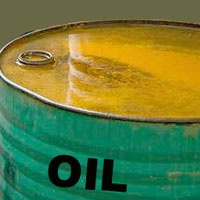Russia weighs Opec proposal for oil production cutbacks
29 Jan 2016
Russia on Thursday said it is considering a proposal by the Organisation of Petroleum Exporting Countries (Opec) to cut global oil production by up to 5 per cent to help tackle the market glut and prop up crude prices.
 The Russian move follows a new proposal backed by Opec leader Saudi Arabia and an earlier one by Opec members Venezuela and Algeria, and once the two sides come together it would be the first global deal in over a decade to help reduce a market glut of crude.
The Russian move follows a new proposal backed by Opec leader Saudi Arabia and an earlier one by Opec members Venezuela and Algeria, and once the two sides come together it would be the first global deal in over a decade to help reduce a market glut of crude.
A five per cent reduction in oil production by Russia, a non-Opec producer and the world's top producer, would represent a 500,000 barrels per day reduction in output and, along with Opec, could immediately reduce surplus global supplies by 1 million bpd.
The move pushed up price of benchmark North Sea Brent futures by as much as 8 per cent to nearly $36 a barrel. Brent was trading at around $34 a barrel at 1940 GMT.
Higher crude prices would be welcomed by oil-rich countries where the steep slide has squeezed budgets and caused political turmoil. Some countries have had to devalue their currencies.
"Indeed, these parameters were proposed, to cut production by each country by up to 5 percent," Novak said when asked if Saudi Arabia had made a proposal to cut output.
"This is a subject for discussions, it's too early to talk about."
Crude prices hit a 12-year low of around $27 a barrel earlier this month, from a high of $115 some 18 months ago, on the back of unchecked Opec production and booming shale gas production in the US.
Opec kept pumping oil to fight for market share against higher-cost shale producers, which pushed down oil prices further.
But cheap oil has caused economic pain in many producer countries, especially in West Asia and South America.
Opec kingpin Saudi Arabia reported a record state budget deficit of around $100 billion pressured by faloling oil prices.
In Russia, the rouble hit an all-time low, street protests have flared in Azerbaijan and investors are concerned about a potential debt default by Opec member Venezuela.
While Saudi Arabia and Opec has repeatedly been calling on non-members to contribute to output cuts, Russia has been shying away from production cuts citing technical issues.
Russia has been saying its fields differ from those in the Gulf and are difficult to shut, but that stance seems to have changed with the state now having control over oil production.
Also, the odds were against Russia since its annexation of Crimea and the conflict in Syria, with the West doing all it could to alienate the country and denying its products market access.
But things have changed now and the oil price issue could unite the various producer groups fighting a market glut.


















